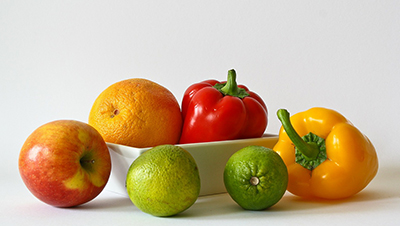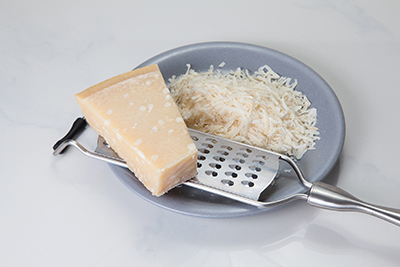A healthy diet can help reduce your risk of developing coronary heart disease and stop you gaining weight, reducing your risk of diabetes and high blood pressure. It can also help lower your cholesterol levels and reduce your risk of some cancers. Even if you already have a heart condition, a healthy diet can benefit your heart.
A balanced diet
Everyone should aim for a well balanced diet. Faddy crash diets may not provide the balance of nutrients you need.
The best way to understand it is to think of foods in food groups.
Try to eat:
- plenty of fruit and vegetables
- plenty of starchy foods such as bread, rice, potatoes and pasta. Choose wholegrain varieties wherever possible
- some milk and dairy products
- some meat, fish, eggs, beans and other non-dairy sources of protein
- only a small amount of foods and drinks high in fats and/or sugar.
Choose options that are lower in fat, salt and sugar whenever you can.
Fruit and vegetables

Fruit and vegetables
A well-balanced diet should include at least 5 portions of fruit and veg a day. Try to vary the types of fruit and veg you eat.
They can be fresh, frozen, dried or tinned. Pure unsweetened fruit juice, pulses and beans count as a portion, but they only make up a maximum of one of your five a day, however much you eat in one day.
A portion is about a handful (80g or 3oz), for example:
- 4 broccoli florets
- 1 pear
- 3 heaped tablespoons of carrots
- 7-8 strawberries
Fats

Cheese
To help look after your heart health it is important to make sure you choose the right type of fats.
So to help keep your heart healthy:
- Replace saturated fats with small amounts of mono and polyunsaturated fats
- Cut down on foods containing trans fats
- It's also important to remember that all fats and oils are high in calories, so even the unsaturated fats should only be used in small amounts.
Saturated fat
Too much saturated fat can increase the amount of cholesterol in the blood, which can increase the risk of developing coronary heart disease.
Unsaturated fats
Unsaturated fats, which can be monounsaturated fats (for example olive oil, rapeseed oil, almonds, unsalted cashews and avocado) or polyunsaturated fats (including sunflower oil and vegetable oil, walnuts, sunflower seeds and oily fish) are a healthier choice.
Trans fats
Another type of fat, known as trans fat, can also raise the amount of cholesterol in the blood.
Salt
Eating too much salt can increase the risk of developing high blood pressure. Having high blood pressure increases the risk of developing coronary heart disease.
Alcohol
If you drink alcohol, it's important to keep within the recommended guidelines - whether you drink every day, once or twice a week or just occasionally.
Staying active

Walking
Physical activity can help reduce your risk of heart disease. It can also help you control your weight, reduce blood pressure and cholesterol and improve your mental health – helping you to look and feel great.
9 ways to get more active:
- Start small - if 150 minutes of physical activity a week seems like a lot, don't worry. You can break it down into ten minute sessions throughout the day and build up from there. Why not try our 10 minute workout? You can do it from the comfort of your own living room.
- Be realistic about your goals - set yourself realistic goals that are specific and achievable. For example, set a goal to walk 30 minutes every day or learn how to swim.
- Make exercise part of your day - plan a time to do some physical activity that fits in with the rest of your day and try keeping an activity diary to help monitor your progress and success. If you miss a day, don't worry - just make sure you start again the next day.
- Keep moving - remember, everyday activities count, so look out for opportunities to be active during the day. For example, use the stairs instead of the escalators, walk to the local shop rather than taking the car and do some stretches when watching TV. Every ten minutes counts!
- You don't have to go it alone - involve friends and family to make activities more fun, sociable and enjoyable. Go jogging with a friend and support and motivate each other, take the children swimming or join an exercise class.
- Make sure you get plenty of variety - make a list of enjoyable activities, such as dancing and yoga, and place them in a jar. Pick a different activity to do each week. By varying your activities, you are less likely to get bored and lose interest.
- Set reminders where you can see them - prompt yourself to be more physically active by keeping reminders around the house. Put Post-it notes on the fridge door or by the kettle, place your cycling helmet on your dressing table or put your walking shoes near the door.
- Keep an eye on your progress - you can use a pedometer to count the number of steps you walk each day. It's easy to use. All you need is a good pair of shoes and you are ready to take a step in the right direction, so you can push yourself to go that bit further next time you exercise. Walking is an ideal activity as it's free and easy to do anywhere. You could walk your children to school and back every day, take the dog for a walk or find a local park and go walking with a friend.
- Reward yourself - recognise when you achieve your goals. Think of things that you could reward yourself with, like a copy of your favourite magazine, a new pair of trainers or a massage.
